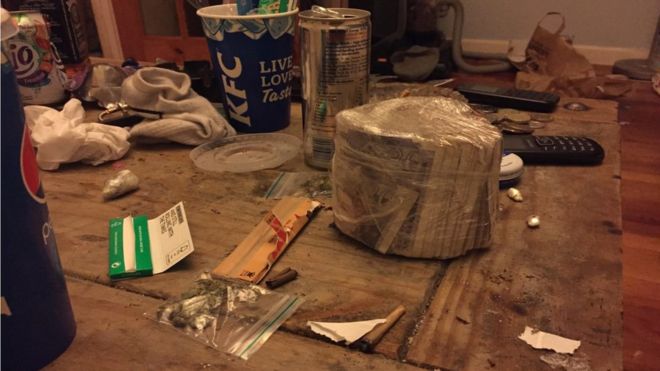British children are being used by gangs known as “county lines” to traffic drugs around the country.
A report by National Crime Agency revealed that children as young as 12 years are being targeted by criminals because they are “inexpensive” and “easily controlled”.
Children go missing from home and school for weeks, carrying heroin and cocaine into coastal areas and smaller towns.
In an interview with the BBC, Kevin Hayland, anti-slavery commissioner says: “It’s a really serious issue for the United Kingdom.”
“These children are being looked as “problem” children rather than victims of modern slavery.”
A leading youth charity, Safe London has said about 4,000 teenagers from London are being exploited and trafficked every year to sell drugs.
Claire Hubberstey, the CEO of Safe London told File on 4 that children are mainly being lured in because of money: “They go there expecting to return in a day or two but in reality, they get drawn into other kinds of criminal activity whilst they are there.”
She also says that there are times when these young people were being locked within the premises and unable to get out.
According to Joe Calourie, Executive Member for Children, Young People & Families has seen 75-100 children being involved. With nearly 32 London boroughs, the number adding up is worrying.
The charity has dealt with many teenagers who are exploited to sell drugs for older gang members.
One such victim spoke to File on 4 about his experience on being involved in county line gang.
Michael (not his real name) was 13 years old when he was first approached by a friend about selling drugs. The prospect of making money lured him into selling drugs in his local area. Soon the gang started sending him for jobs out of London, promising that he would earn around £500 a week.
Sent to a house of a vulnerable drug user that the gang had taken over in Midland, Michael soon got roped into a practice called cuckooing. Using this house as his base, he started selling heroin and crack cocaine on the street.
Michael told File on 4: “I was a bit shaky, I was actually scared.”
“But from the time you see the money, you’re just thinking, ‘OK, I can just bear a bit more.'”
Michael grew up with a normal upbringing and a close relationship with his family, but soon the gang became his new family.
Frantic by his long absences, his family would try to stop him by taking his phone away. However, as soon as he left the house, the gang would start hassling him. They would even take him to a house where they ran a “breakfast club” – he would have breakfast there and leave for school, and after school, they would pick him up as well.
Michael did this for three years. Eventually, after being arrested for possession of drugs, he decided to stop but the gang wouldn’t leave him alone. “They were trying to get at me but I moved away from the area, so I think that helped me a lot.”
“I started to gain different knowledge and actually make my life something else and not just be another number.”
Word: Bishakha Dutta | Sub: Ainaa Mohamed

